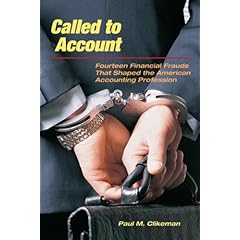Panel members included Tony Blair, the former prime minister of the U.K. current UN Middle East Quartet Representative, and member of the Foundation Board of the World Economic Forum, Stephen Green, Group Charimen of the HSBC, UK, Indra Nooyi, Chairman and CEO of PepsiCo, USA, Shimon Peres, President of Israel, James J. Schiro, Group CEO and Chairman of the Group Management Board, Zurich Financial Services, Switzerland, and Jim Wallis, Editor-in-Chief and CEO of Sourjourners, U.S.A.
Maria Ramos, Group Chief Executive, Transnet, South Africa and Co-Chair of the World Economic Forum Annual Meeting 2009 was the moderator of this panel. The following questions were asked of the participants:
"Regulatory and market failures have clearly damaged capitalism, but the ethical and moral lapses that led to those failures will prove to be more pernicious over time. What ethical and moral concerns need to be addressed to avoid a greater backlash to market capitalism?
Are we living by the right values?"
According to the summary of the panel's discussion, "Panellists agreed that, while the financial system needs to be fixed, the solution is not excessive regulation that stifles innovation and free enterprise. A serious reflection of the morals and ethics underpinning the system is clearly warranted and, in particular, the concept of the common good has to be revisited."
“...The best free enterprise is stakeholder free enterprise where the wider economy is at the service of wider society.” -Tony Blair
“This is about values that have developed in the markets in recent years. We have moved from the old cliché ‘my word is bond’ to a culture and atmosphere where ‘if there’s a transaction, if there’s a market for it, and I have a contract, and it’s legal, that’s it; I don’t need to think about the underlying right or wrong, suitability or unsuitability." - Stephen Greene
"You know, crisis, in the eyes of many people, sounds like an end. I think it can sound like a beginning as well..... I think the greatest document in the domain of the economy is still the 10 commandments...for all of us." - Shimon Peres
The moderator then moved the discussion to Jim Wallis. His contribution to the panel can be found on his blog post, "Davos: How Will This Crisis Change Us?"
Here are a few excerpts:
"...We should be asking, “How will this crisis change us?” How will it change the way we think, act, and decide things — how we live, and how we do business? Yes, this is a structural crisis, and one that clearly calls for new social regulation. But it is also a spiritual crisis, and one that calls for new self-regulation. We seem to have lost some things and forgotten some things — such as our values."
"We have trusted in “the invisible hand” to make everything turn out all right, believing that it wasn’t necessary for us to bring virtue to bear on our decisions. But things haven’t turned out all right and the invisible hand has let go of some things, such as “the common good.” The common good hasn’t been very common in our economic decision-making for some time now. And things have spun out of control....
...Gandhi’s seven deadly social sins seem an accurate diagnosis for some of the causes of this crisis:
“politics without principle, wealth without work, commerce without morality, pleasure without conscience, education without character, science without humanity, and worship without sacrifice.”"
The Invisible Hand via New York Times 5/25/08 "The Invisible Hand is Shaking" (Robert H. Frank)











